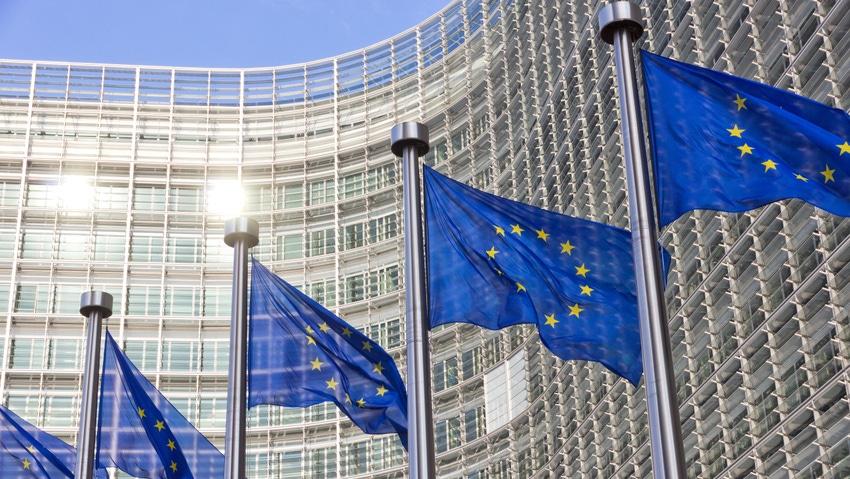Eurobites: Telecom lobby adds voice to call for EU Single Market reboot
Also in today's EMEA regional roundup: Openreach touches the accelerator; Nokia, A1 Austria and Microsoft claim 5G network-slicing first; Vodafone and Samsung test open RAN on AMD silicon.

Telecom lobby groups ETNO and the GSMA have added their voices to a collective call for a reset of the EU's Single Market that will address what they and more than 20 other trade bodies from various sectors see as an "increasingly complex and fragmented regulatory environment." In contrast to the heady days of the 1980s, when hundreds of EU proposals helped eliminate trade barriers and red tape between member states, European companies today face, say the lobby groups, mounting compliance costs and reporting requirements which can stand in the way of attracting investment and thereby restrict growth. ETNO's director general, Lise Fuhr, said: "Telecom operators support a stronger EU Single Market. Leadership in the connectivity ecosystem requires scale, higher investment and lower regulatory barriers."
In other EU matters, two European Parliament committees have ratified a provisional agreement on the AI Act, a set of rules intended to provide safeguards for the way artificial intelligence is used in across a broad range of industries. As Reuters reports, the rules, once they emerge from the Brussels legislative mill, will also regulate the "foundation models" used by the likes of ChatGPT-creator OpenAI.
Openreach, the network access arm of UK incumbent operator BT, is launching two new wholesale broadband tiers, one offering 1.2 Gbit/s and the other 1.8 Gbit/s download. The faster speeds are being made possible through the introduction of a new optical network terminal (ONT), which will be offered to all new customers signing up to a full-fiber service and to existing customers via a box swap-out. Communications service providers will also need to supply existing customers with what Openreach describes as "more capable routers."
Nokia and Austrian operator A1 say they have successfully completed "the industry's first" 5G edge cloud network-slicing trial in collaboration with Microsoft. The deployment combined Nokia's 5G edge slicing offering with Microsoft Azure managed edge computing on A1's live commercial network in Vienna. During the trial, A1 demonstrated real-time HD video streaming by transmitting live camera feeds from several mobile devices using Multicasting.io's streaming platform running on the Azure edge infrastructure.
Vodafone, meanwhile, has been teaming up with Samsung and AMD to demonstrate their first end-to-end data call using AMD's new general-purpose processor on an open RAN platform. Conducted in Samsung's research lab in South Korea, the call was completed using Samsung's open RAN-compliant vRAN software, integrated with AMD's EPYC 8004 chip on Supermicro edge servers, supported by Wind River's cloud-based platform.
Vodafone Romania has signed a six-year agreement with Ericsson to roll out 5G and upgrade its existing network. As well as bringing faster connectivity speeds and lower latency, the project should also reduce the operator's network energy consumption.
Ericsson has also landed a 5G core network deal with the Swedish Civil Contingencies Agency (MSB) to help develop Rakel G2, Sweden's critical communications network for public safety and emergency services, including national defense purposes. Ericsson's 5G core network will initially complement MSB's existing national radio communications system Rakel, which is based on the Tetra standard.
Shares in Arm, the UK-based but New York-listed chip design company, have more than doubled in value in three days, reports City A.M., in the wake of its expectations-busting and AI-referencing third-quarter earnings update revealed last week. (See Arm is landing blows on x86 amid AI frenzy.)
Three, the UK mobile operator possibly on the brink of being swallowed by Vodafone, has been forced to apologise after unspecified technical problems left more than 10,000 of its customers without service over the weekend and into Monday. As the Guardian reports, the problems affected both voice calls and mobile data use.
Read more about:
EuropeAbout the Author(s)
You May Also Like












